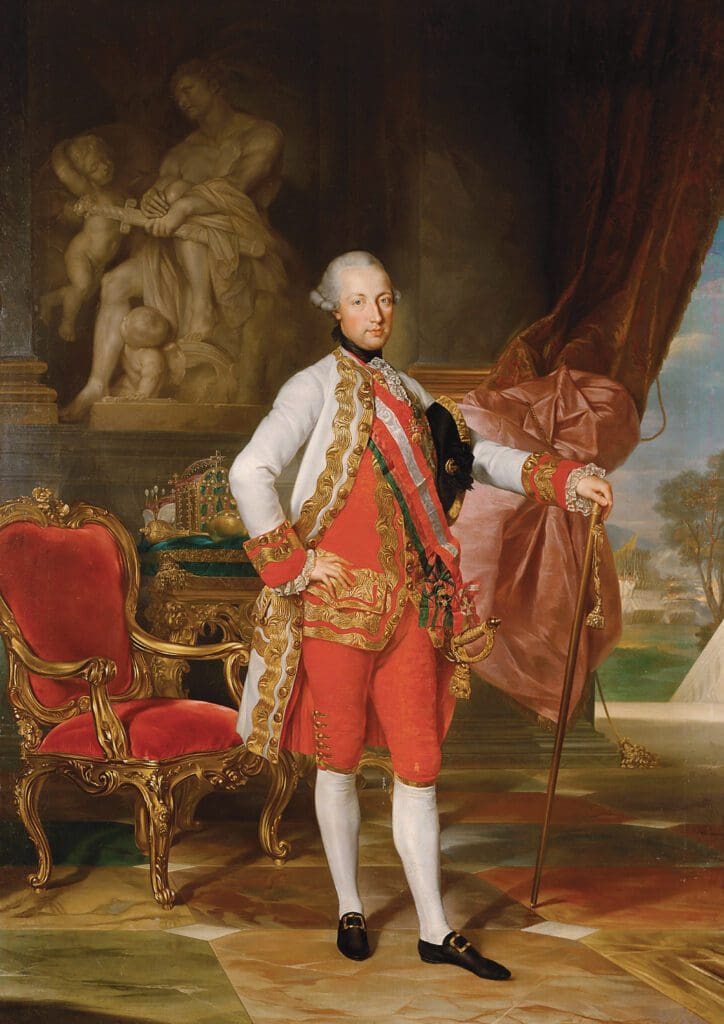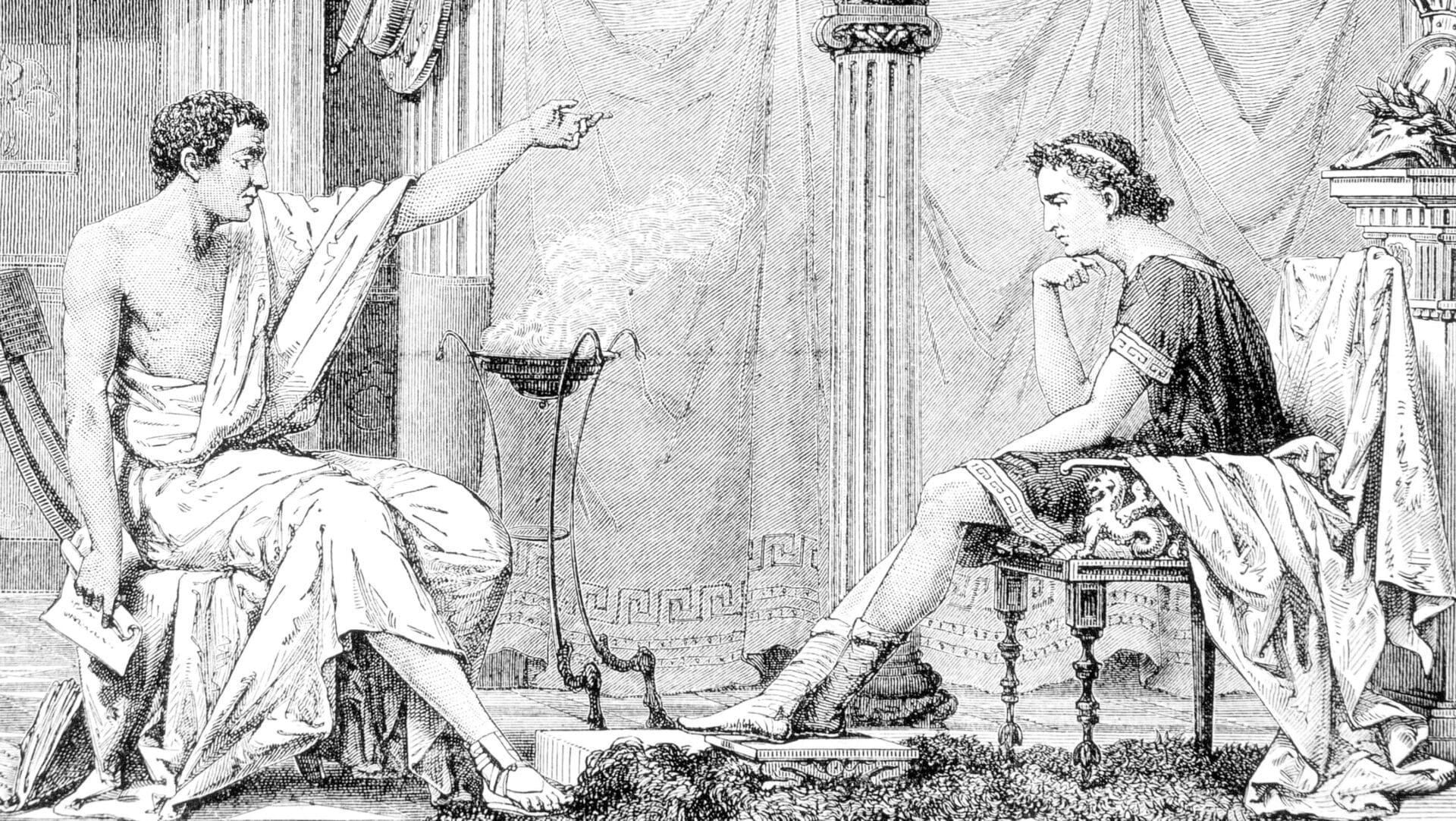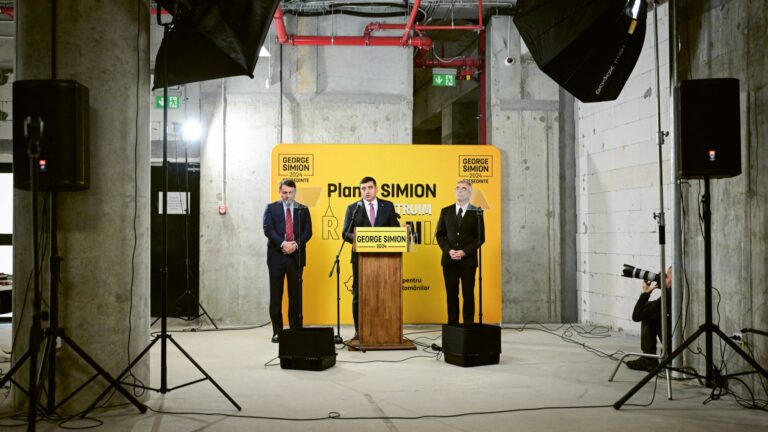Ever since the Revolution in France split politics into left and right, the two polarities have been cast as those ‘in favour of change’ and those ‘against change’ or in favour of the status quo. The picture of conservative politics found in this discourse has typically favoured the left, which portrays conservatism as an undynamic preservation of the existing order. To maintain a successful conservative government—which we will instead call ‘good government’—we must look at how the classical, Aristotelian tradition understood the politics of preservation and change. The classical tradition was extremely attentive to the dynamics of rule. It distinguished between promoting innovation to serve good government and preventing innovations against good government. For the classical tradition, in fact, these were two sides of the same coin. Forming good government for the long term, especially here in Central Europe, depends on promoting constructive innovation while forestalling innovations that undermine society’s bedrock commitments.
To better understand the dynamics of rule, we first have to grasp why modern politics generally, and liberals in particular, have put such emphasis on innovation rather than preservation—so much so that ‘conservatives’ have a reputation for being on the outside of everything interesting and distinctive in modernity. As with many other features of modernity, the answer here goes back to Niccolò Machiavelli.
Why Innovation Triumphed
According to Machiavelli, the princes of Italy were continually succumbing to misfortune due to a Christian misunderstanding of the role of virtue in politics. ‘For a man who wants to make a profession of good in all regards’, he wrote in The Prince, ‘must come to ruin among so many who are not good. Hence it is necessary to a prince, if he wants to maintain himself, to learn to be able not to be good, and to use this and not use it according to necessity.’1 The successful prince, said Machiavelli, must be flexible, opportunistic and, above all, ready to take the reins of power. The greatest opportunity lay in making a principality ‘altogether new’.2
Machiavelli’s revaluation of novelty came from an observation about the weakness of classical politics. Until the sixteenth century, the primary lessons on politics came from Cicero, Polybius, Aristotle, and other representatives of the classical tradition. Their approach to politics emphasized primarily the internal characteristics of good rule. A good regime would solve, or at least manage, the continual conflict between the few and the many, the oligarchs and the people, that disrupted classical cities.
For Machiavelli, this approach to rule succumbed to two main weaknesses that in turn required a new approach. First, the necessity of preparing for military conflict would make innovation in the military arts a continual requirement. Within the context of a conservative society, that devotion to military innovation would undermine the classical city’s scepticism of continual innovation in the arts. Second, then, instead of seeking to solve tensions between the many and the few through politics, a city would need to turn itself periodically toward war. War would allow a city to vent its humours and unite in the face of an external enemy.
Within a century and a half of Machiavelli’s death in 1527, Europe began to see the birth of a recognizably modern civilization devoted to rapid advances in the arts. For the Enlightenment philosophers who came after Machiavelli, all the elements of the new world went together. Forward-looking princes would foster scientific innovation that would become the basis of a new, more rational society.
At the same time, traditional Christianity could be gradually phased out. The Habsburg Emperor Joseph II (r. 1765–1790) typified this new style of prince. Not only did he foster scientific innovation, he also suppressed religious orders with reckless ferocity. Here in Hungary, the Castle District still bears witness to ‘Josephinist’ depredations: the Church of Mary Magdalene and the Carmelite Monastery of Buda housed religious orders until Joseph II stamped out many Catholic religious foundations.
The collective impression left by technological society and revolutionary politics was that the old order had simply rested on its laurels. ‘In hereditary states’, Machiavelli wrote, ‘it is enough only not to depart from the order of his ancestors, and then to temporize in the face of accidents.’3 Conservative government, by definition, would be poorly matched to the challenges of modernity. Conservative governments could be expected to suffer a decline in technological innovation. From a military standpoint, they would therefore soon be outclassed by foreign powers, who would run roughshod over them and fold them into the liberal imperium.
On the contrary, the classical approach was all about providing the correct context in which innovation, both in the arts and in government itself, could serve society as a whole. As today’s innovations become more disruptive—from ‘lifestyle’ innovations like LGBT ideology, to Facebook’s attempt to replace reality with VR—the burden will fall on conservative societies to show that good government and good management can serve the common good while promoting a vibrant and dynamic society at the same time.
The Preservation Principle
There is a strong temptation, however, for stable conservative governments to imitate Machiavelli’s caricature of hereditary states—not departing from the ancestral way, temporizing in the face of accidents. Today such a conservative state would be a simply reactive one. Cleaving to cultural traditions without stabilizing them through public support, it would become increasingly unable to temporize successfully. Adverse trends from outside would creep up on it. Without understanding their way of colonizing it, the conservative state would become hollowed out from within as its population was corrupted. With time, it could go the way of Québec or Ireland.
Yet the classical tradition did not at all view politics this way—as a mere inheritance to convey onward while batting away unwanted challenges. Aristotle, the originator of classical political science, rather assumed that polities would be under constant internal tension that could lead to the undoing of society. For Aristotle, as he outlined his view in Book 5 of his Politics, the source of this tension lay in the unavoidable situation that government, even if or indeed precisely when intending the common good, could not please everyone and could, in fact, alienate a major sector of the people or the elite.4 A merely ‘conservative’ policy would not do. Every political arrangement, in Aristotle’s view, contains some weakness or source of potential failure.
Accordingly, the task of governing for Aristotle is not to preserve the status quo. Rather, the purpose of governing is to maintain a city’s form and identity for as long as possible.5 The crucial point here, however, is that Aristotle viewed every city as containing dynamics that undermined stable rule. Left to its own devices, every regime will eventually be undermined by dynamics that it failed to account for. In the classical world, the source of this problem was chiefly the conflict between the many and the few.6 A government by either party—the many or the few—would tend to irritate and eventually alienate the other. This result would especially come about due to the tendency of parties to rule in their own interest rather than for the common good. When the rich were in power (an oligarchy), they would tend to treat the poor badly and exclude them from public offices; when the poor were in power (a democracy), they would cap wealth and even exile the rich. Both of these would tend to spark backlash or revolution.
In short, for Aristotle every regime has a bad tendency that, left unchecked, would be its undoing. From this thought process we can frame Aristotle’s preservation principle: regimes can only last by improving themselves; in seeking to preserve themselves, they will have to undertake improvements to their society and laws.
Aristotle’s vision of ‘conservative’ politics was, then, neither that the status quo should be maintained nor that ‘innovation’ should be promoted as a concept unanchored from more fundamental realities. Instead, Aristotle held that loving our country means wanting it to continue for the longest possible time—but that enabling it to continue can only come through improving it.
‘Left to its own devices, every regime will eventually be undermined by dynamics that it failed to account for’
Avoiding Sources of Revolution
What causes the factional conflict that leads to political change and the collapse of good government? Aristotle has a simple answer: inequality.7 When the rich in power feel that inclusion of the poor would be a dishonour to themselves, or when the poor in power feel that the rich are inherently a threat, destabilization can quickly occur.
Many different specific occasions can give rise to political turmoil. For Aristotle, these generally fall into two types: imbalances between the different classes or among key political actors, and political accidents that are easily overlooked.8 In the first case, Aristotle speaks of jealousy, arrogance, fear, and contempt as causing distrust and sowing discord within a society. If only one part of society profits through economic improvement, for example, jealousy will easily arise elsewhere. Fear, too, can cause all sorts of political turmoil—particularly when a portion of society begins to fear that it is being conspired against or mistreated by another part.
In the latter sense, Aristotle sees electioneering as a frequent cause of factional conflict. But he also identifies dissimilarity of stock within a city—that is, the presence of irreconcilable cultural differences—as making political strife far more likely. Underestimating challenges can endanger stable government as well. Last but not least, ‘small matters’—love affairs and quarrels within a ruling party—can easily bring discredit and spark factional conflict.9
Aristotle’s advice on how to make a regime endure by making it good deserves careful study. Let us take a few examples, from his Politics, Book 5, Chapters 8–9:
1. Do not allow transgressions of the laws.10 A common source of discord is simply the regular breaking of the laws. In America in recent years, we have begun to see major Democratic-run cities tolerate ever-greater instances of public disorder, as riots and robberies are treated softly. A sense of disorder sets in and, with it, political discontent. In the orderly years of Mayor Rudy Giuliani’s New York City, by contrast, small crimes (e.g., illegally selling cigarettes) were sometimes prosecuted in order to prevent larger ones. A healthy society should not prosecute the laws in a narrow manner, yet ought to maintain a cultural aversion to undermining public order.
2. Treat well those outside the regime as well as those in the governing body.11 Those who have no part in ruling are a natural source of discontent that can lead to conspiring and eventually larger forms of factional conflict and revolution.
3. Guard against rivalries among the notables.12 Conflict among a political elite can easily lead to greater sources of political discontent, as rivalrous or disaffected politicians seek independent sources of popular support. Since leaders are naturally ambitious, considerable skill is necessary to harness their ambitions to the good of the polity as a whole.
4. Ensure that officeholders have affection for the regime, capacity, virtue, and justice.13 While advice like this might seem obvious, today officeholders are often more interested in transnational or global political projects that have little to do with serving their own country. Capacity for performing one’s office can also not be taken for granted, as the challenges of twenty-first-century governance present constant surprises. Finally, the distinction between private and public life is not the same for prominent officeholders: virtue and justice reduce the likelihood of causing scandal and public reactions.
5. Guard against the prospering of a part of the city and do not neglect the middling element.14 Since the wrongs associated with perceived inequality are a major cause of political instability, no part of the city should grow excessively prosperous at the expense of others. A sizable middle class (the ‘middling element’ in Aristotle’s terminology) guards against this tendency, by ensuring that a large segment of the city is fundamentally invested in the preservation of its good order. In recent years, neoliberal economic globalism has given rise to a financial elite whose success is less and less tied to the actual country around them. Giving each part of the country a financial stake in its continued success is crucial for political stability.
6. Ensure education relative to the regime.15 Finally, Aristotle argues that the endurance of any political regime depends upon educating the people in the fundamental moral and intellectual habits necessary to preserve it. A strong emphasis on history, identity, and national culture, as well as religious and ethical formation, is a given for this. At the same time, excellent education in science, technology, and management is necessary for enabling broadly shared economic prosperity.
For Aristotle, these steps are by no means merely easy or conservative ones. Instead, they require a government to correct each of its bad tendencies—the tendency to neglect its opponents, to overlook sources of discontent, to seek its own prosperity and to fall into all the ordinary vices of human affairs. Preventing bad political innovations can only come about through a steady transformation of government toward good government. As Edmund Burke wrote, ‘A state without the means of some change is without the means of its conservation’.16 Aristotle’s view envisions even more comprehensive improvements necessary to forestall collapse.

A Policy Mix for Preservative Innovation
But what of technological innovation? Today ‘innovation’ is most often linked with technological and economic changes that come from elsewhere—from innovators in Silicon Valley or from foreign economic interests that are able to steamroller more conservative societies and existing practices.
A ‘preservative’ view of innovation would welcome technological and industrial innovations that bring fundamental improvements and hold the key to long-term economic stability. Discerning which innovations are which is, of course, a matter of prudence. It may be, for example, that industrial robotics hold the key to long-term improvements in employment, since without them existing industries would become dated and collapse. By the same token, however, the common post-Cold War view that industrial labour could be outsourced to China and Third World countries with no consequences at home proved to be a disastrous view with deeply insidious long-term political consequences.
In Central Europe, at least, there has been the opportunity to view some forms of political, economic, and cultural change from afar. The so-called woke ideology of liberal American universities, for example, has clearly sown poison in the West—and avoiding its extremes in Central Europe is a key to success and survival.
What would a policy mix look like that would preserve good government by relentlessly improving it?
1. Continue to promote marriage, especially among professional classes where marriage rates are falling. One way that liberalism has dissolved continuity across time is by isolating individuals and cutting them off from future generations through childlessness. A society with no families and no children is dominated by individuals with no stake in the long-term success of society. Without marriage and the family, nations literally cannot preserve themselves; with marriage and the family widely promoted, a key source of alienation and detachment can be resolved.
2. Regulate the cultural impact of foreign capital.17 Machiavelli, even more than Aristotle, saw disruptions from the outside as the fundamental source of domestic disturbance. In his view, the problem of foreign policy ultimately meant that long-term good government is not possible. In contemporary times, we have seen this problem chiefly affect conservative societies like Ireland and Québec. In spite of deep-rooted conservatism, these cultures were uprooted in a matter of years by the disruptive impact of culturally aggressive foreign capital. Regulating the cultural impact of foreign investment should therefore be a prime directive.
3. Promoting capability, virtue, and fellow-feeling among leaders. In the United States, our political classes have become increasingly dominated by a gerontocracy of baby boomers who have monopolized the nation’s wealth and do not want to let go of political power. Giving younger generations a share in political leadership, while promoting their affection for their country, is perhaps the single most essential element for preserving good government today.
4. ‘Seek after peace, and pursue it’ (Psalm 33:15). In Machiavelli’s view, the possibility of war necessitated continual innovation within cities, particularly in terms of military technology. As war rages around us today, it is clear that peacemakers will have an advantage in political decision-making. Warlike powers have been committing themselves to actions that undermine their own domestic stability and promote political turmoil at home. Instead of hoping that external war will unite society at home, Western powers should seek stability in peace.
For much of modern times, conservatives have contented themselves with being on the losing side of political battles. But today, it is liberal regimes that have begun to undermine themselves. Liberal governments have sold out their middle classes, alienated their people from their own cultural traditions, downplayed the importance of marriage and the family, and allowed childless, capital-owning portions of society to dominate.
It is conservative governments that today have the opportunity to frame a new approach that harnesses economic and political change for the good of society. Doing so will require a strong effort by political leaders to avoid the things that typically prevent and undermine good government. By looking to extend good political life well into the future, conservative societies can rise above the dynamics that are typically their undoing, and transmit to their children the precious inheritance of a vibrant civilization. Indeed, the fate of civilization depends on it.
NOTES
1 Niccolò Machiavelli, The Prince, trans. Harvey C. Mansfield, 2nd ed. (Chicago: University of Chicago Press, 1998), Chap. 15, p. 61.
2 Machiavelli, The Prince, Chap. 6.
3 Machiavelli, The Prince, Chap. 2, p. 6.
4 Aristotle, Politics, trans. Carnes Lord, 2nd ed. (Chicago: University of Chicago Press, 2013).
5 Aristotle, Politics, Book 4, Chap. 1, sent. 4.
6 Aristotle, Politics, Book 5, Chap. 1.
7 Aristotle, Politics, Book 5, Chap. 1, sent. 11.
8 Aristotle, Politics, Book 5, Chap. 2–3.
9 Aristotle, Politics, Book 5, Chap. 3.
10 Aristotle, Politics, Book 5, Chap. 8, sent. 2.
11 Aristotle, Politics, Book 5, Chap. 8, sent. 5.
12 Aristotle, Politics, Book 5, Chap. 8, sent. 9.
13 Aristotle, Politics, Book 5, Chap. 9, sent. 1.
14 Aristotle, Politics, Book 5, Chap. 8, sent. 13; Chap. 9, sent. 6.
15 Aristotle, Politics, Book 5, Chap. 9, sent. 11.
16 Edmund Burke, Reflections on the Revolution in France (London: Dodsley, 1790), 29.
17 Neumann Forum, ‘Foreign Direct Investment, Liberal Economic Development, and the Proliferation of Socio-Political Pathology. Ireland: A Case Study’, 2022, https://theneumannforum.com/wp-content/uploads/2022/06/Foreign-Direct-Investment-Liberal-Economic-Development-and-the-Proliferation-of-Socio-Political-Pathology-final1.pdf.








